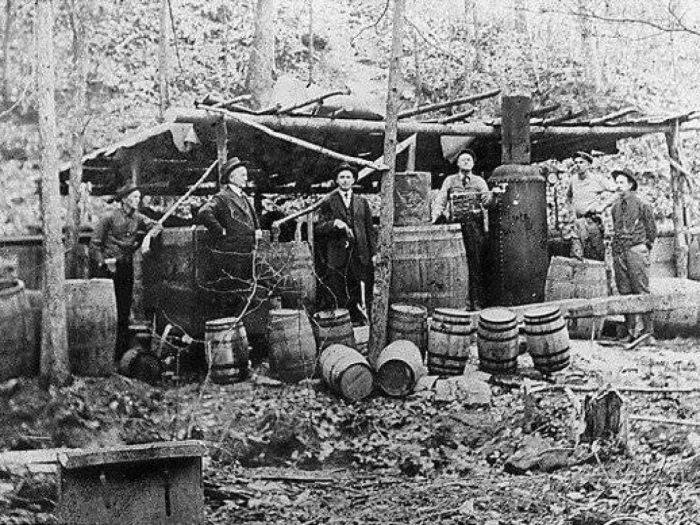|
|
History: Prohibition Of Alcoholic Beverages, Los Angeles, California, United States
|
On March 22, 1933, President Franklin Roosevelt signed an amendment to the Volstead Act, known as the Cullen–Harrison Act, allowing the manufacture and sale of 3.2 beer (3.2 percent alcohol by weight, approximately 4 percent alcohol by volume) and light wines. The Volstead Act previously defined an intoxicating beverage as one with greater than 0.5 percent alcohol. Upon signing the Cullen–Harrison Act, Roosevelt made his famous remark: "I think this would be a good time for a beer." The Cullen-Harrison Act became law on April 7, 1933, and the following day Anheuser-Busch sent a team of Clydesdale horses to deliver a case of Budweiser beer to the White House.
• Repeal
The Eighteenth Amendment was repealed on December 5, 1933, with ratification of the Twenty-first Amendment to the U.S. Constitution. Despite the efforts of Heber J. Grant, president of The Church of Jesus Christ of Latter-day Saints, a Utah convention helped ratify the Twenty-first Amendment. While Utah can be considered the deciding thirty-sixth state to ratify the Amendment and make it law, both Pennsylvania and Ohio approved it the same day that Utah did.
One of the main reasons why enforcement of Prohibition did not proceed smoothly was the inefficient means of enforcing it. From its inception the Eighteenth Amendment lacked legitimacy in the eyes of the public who had previously been drinkers and law-abiding citizens. In some instances the public viewed Prohibition laws as “arbitrary and unnecessary”, and therefore were willing to break them. Law enforcement agents found themselves overwhelmed by the rise in illegal, wide-scale distribution of alcohol due to the Volstead Act. The magnitude of their task was not anticipated and law enforcement agencies lack the resources needed. Additionally, enforcement of the law under the Eighteenth Amendment lacked a centralized authority. Many attempts to impose Prohibition laws were deterred due to the lack of transparency between federal and state authorities. Furthermore, American geography contributed to the difficulties in enforcing Prohibition. The varied terrain of valleys, mountains, lakes, and swamps, as well as the extensive seaways, ports, and borders the United States shared with Canada and Mexico made it exceedingly difficult for Prohibition agents to stop bootleggers given their lack of resources. Ultimately it was recognized with its repeal that the means by which the law was to be enforced was not pragmatic, and in many cases the legislature did not match the general public opinion.
|
|









